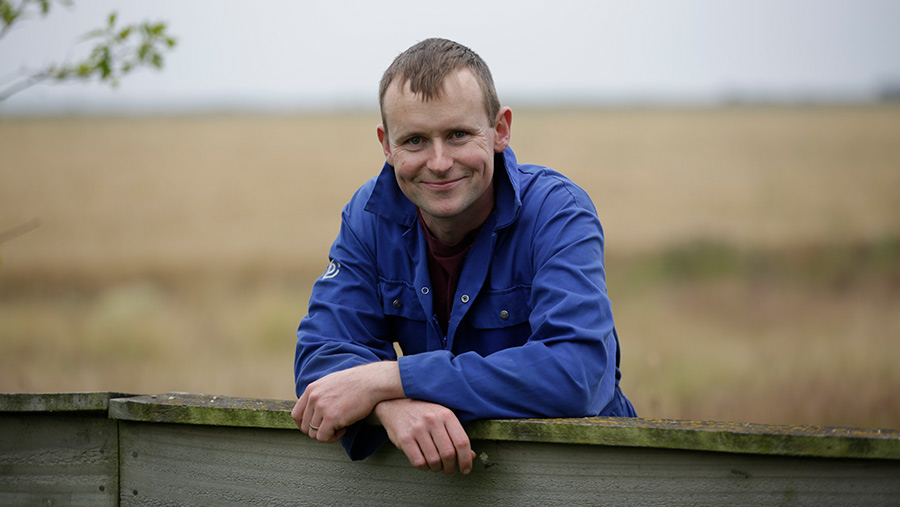Chris Bennett: Is growing OSR akin to an Einstein quote?
 © Johnny Houston
© Johnny Houston A drive back from dropping my brother-in-law off at Heathrow recently gave a good opportunity to see how everyone else’s oilseed rape crops are progressing.
My conclusion was the closer I got to our farm in Lincolnshire, the worse they looked.
With the exception of our two smallest fields, anybody driving past our farm would do well to know we planted OSR at all. We are currently debating if any of our redrilling is good enough to keep.
Cabbage stem flea beetle had already devoured 75% of the area we drilled in August and they are currently tucking into that same redrilled area again.
See also: Chris Bennett – where has all the BPS money gone?
What rubs salt in the wound is seeing media reports that this year hasn’t been too bad for flea beetle. It is certainly our worst.
Has anyone else been out at night to see the flea beetle at work? When I looked, there were as many flea beetle as there were rape plants.
We tried spraying them with a pyrethroid at night hoping for better control, but found they were resistant, as they were just as easy to find after as they were before.
So is it time to give up on OSR altogether, or do we try again next year hoping it will be better? It reminds me of the Einstein quote:
“The definition of insanity is doing the same thing over and over and expecting different results.”
We have changed what we can – spraying insecticides at night, mixing hybrid and conventional varieties, drilling early and drilling late, but it seems the only way to guarantee you don’t have a flea beetle problem is to not grow OSR at all.
In farming we tend to make too many decisions based on what happened the previous year. It is possibly an overreaction to give up completely after one year of failure.
In truth it has been 10 years since neonicotinoids were banned and this is the first year we have had serious problems. When next year rolls around, we’ll probably try again.


